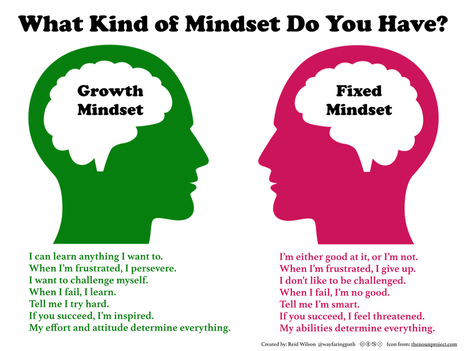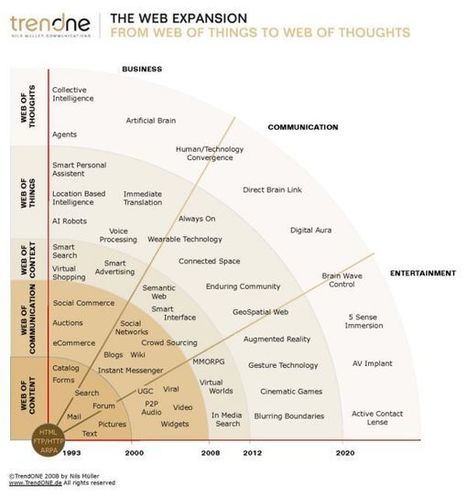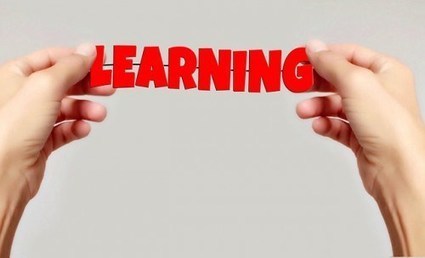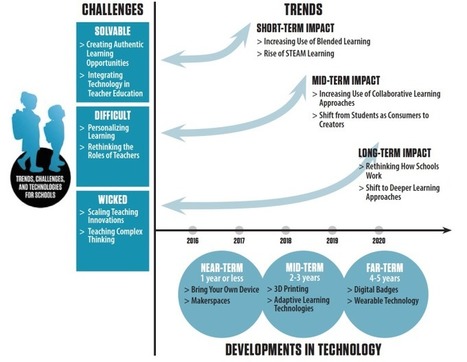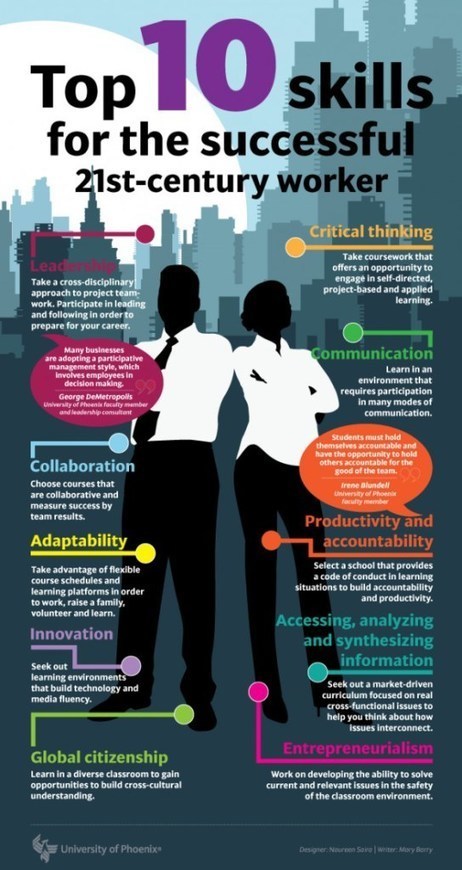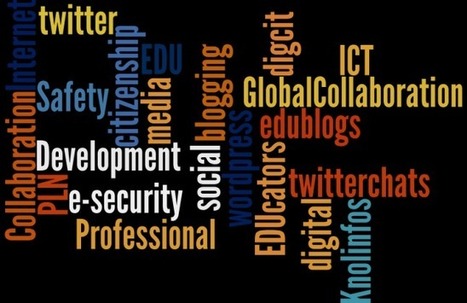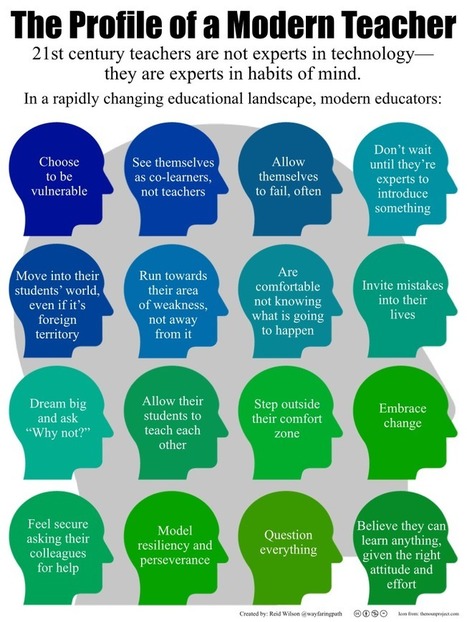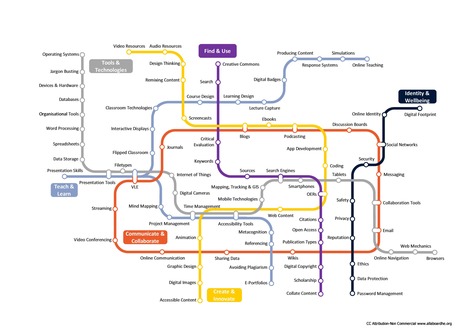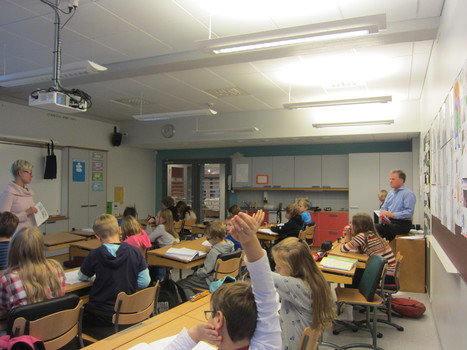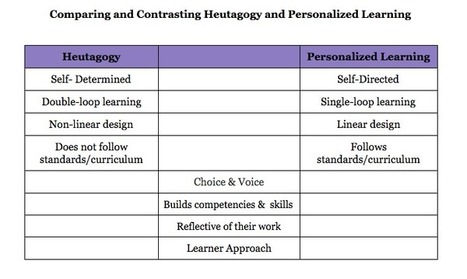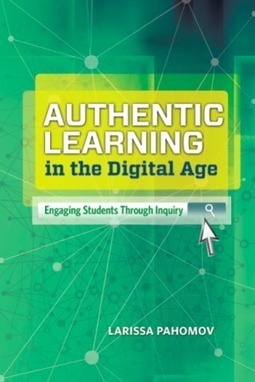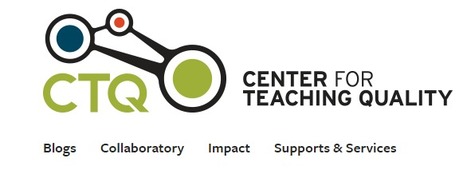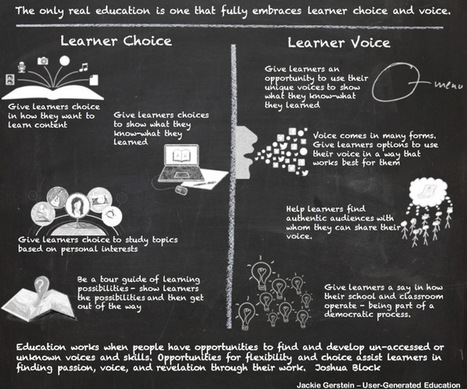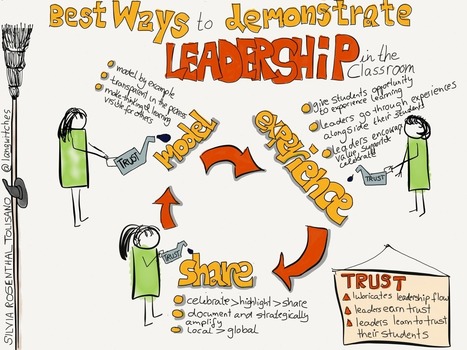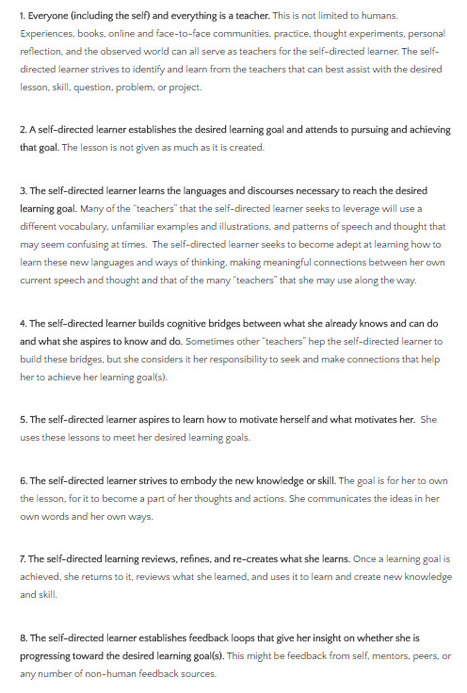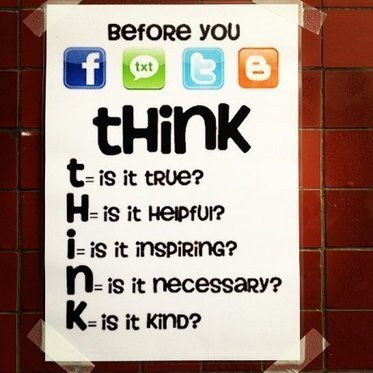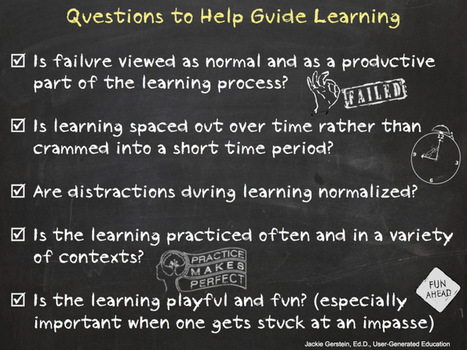 Your new post is loading...
 Your new post is loading...
An idea that is beginning to gain a lot of favour in educational circles at the moment is the notion of fixed versus growth mindsets, and how they might relate to students and learning. Based on the work of Stanford University psychologist, Carol Dweck, the idea of mindset is related to our understanding of where ability comes from. It has recently been seized upon by educators as a tool to explore our knowledge of student achievement, and ways that such achievement might be improved. Learn more / En savoir plus / Mehr erfahren: http://www.scoop.it/t/21st-century-learning-and-teaching/?&tag=Growth+Mindset
Via Gust MEES
This is not too a difficult question to address, because innovative teaching is good whether or not technology is used. A bad teacher does not suddenly become a good teacher just because technology is included into the mix. Nor does a good teacher need to always use technology to maintain their effectiveness. But before we discuss this question any further, we should define 'innovative teaching.' What is it, and how do we know a good, innovative teacher when we see one?
For me, innovative teaching is often invisible, and the teacher is very much peripheral, to the most important factor - the student and their learning. Good teachers instinctively know when to intervene and most importantly, when to get out of the way. Teaching is not so focused on instruction today (and nor should it ever have been), but is increasingly about facilitation, and considers the student holistically. Innovative teaching focuses on creating conducive environments within which good learning can occur. Innovative teachers are excellent at supporting students, and are also adept at creating engaging content and new experiences. A good teacher observes and measures progress without causing any stress to the learner or interruption to learning.
Innovative teachers are instinctive about student challenges such as lack of understanding, loss of focus, low engagement or demotivation. They strive to find new ways to keep students on task, motivate them to do their best, and encourage them to succeed. Innovative teaching is where good teachers are inventive and creative - where they continue to discover and devise new methods and content to ensure that students always get the best learning experiences. But consider that invention and innovation are not the same. Invention requires a creative individual, whereas innovation requires a courageous community (see for example Rogers' Diffusion of Innovation Theory, 2003). Therefore, innovative teachers also need courage to embed their new methods and content, especially if it runs counter to the culture they work within. Learn more / En savoir plus / Mehr erfahren: http://www.scoop.it/t/21st-century-learning-and-teaching/?tag=innovation http://www.scoop.it/t/21st-century-learning-and-teaching/?tag=Rise+of+the+Professional+Educator
Via Gust MEES
In a blog post, Bill Gates explores personalized learning. Not only do kids get to learn at their own pace, which gives them more confidence, but teachers at Summit get matched with students who they'll mentor for all four years. Instructors can use in-house software to see which of their dozen or so students has completed certain assignments and exams. The end result is that kids don't have many opportunities to slip through the cracks. And by taking an active role in their education, they learn responsibility and self-reliance.
Via Oliver Durrer swissleap.com, Gust MEES
Do you know the answer to the next simple question? "What do you know about web 2.0 technology?" What's so interesting about this video, is the simple fact that none of these so called digital natives are familiar with the term web 2.0. Although they never had a life without technology, they just don't know…
Via Ramiro Aduviri Velasco, Gust MEES
WHAT Are THE Skills Needed From Students In The Future!? OR, WHAT Are THE Jobs Look Like In The Future!? That are actually questions which I get asked very often from people and where I could ask ONLY the first one! WHAT Are THE Skills Needed From Students In The Future!? Well, there is one well renown personWHO explains it BEST in my opinion, and that is Howard GARDNER.
Learn more:
- https://gustmees.wordpress.com
Via Gust MEES
Creativity is about fresh thinking. It doesn’t have to be new to the whole of humanity— though that’s always a bonus— but certainly to the person whose work it is. Creativity also involves making critical judgments about whether what you’re working on is any good, be it a theorem, a design, or a poem. Creative work often passes through typical phases. Sometimes what you end up with is not what you had in mind when you started. It’s a dynamic process that often involves making new connections, crossing disciplines, and using metaphors and analogies. . Being creative is not just about having off-the-wall ideas and letting your imagination run free. It may involve all of that, but it also involves refining, testing, and focusing what you’re doing. It’s about original thinking on the part of the individual, and it’s also about judging critically whether the work in process is taking the right shape and is worthwhile, at least for the person producing it. . Learn more: . - http://www.scoop.it/t/21st-century-learning-and-teaching/?tag=Creativity . - http://www.scoop.it/t/21st-century-learning-and-teaching/?tag=Sir-Ken-Robinson
Via Gust MEES
|
Spend five minutes in Jussi Hietava’s fourth-grade math class in remote, rural Finland, and you may learn all you need to know about education reform – if you want results, try doing the opposite of what American “education reformers” think we should do in classrooms.
Instead of control, competition, stress, standardized testing, screen-based schools and loosened teacher qualifications, try warmth, collaboration, and highly professionalized, teacher-led encouragement and assessment.
At the University of Eastern Finland’s Normaalikoulu teacher training school in Joensuu, Finland, you can see Hietava’s students enjoying the cutting-edge concept of “personalized learning.”
Learn more / En savoir plus / Mehr erfahren: http://www.scoop.it/t/21st-century-learning-and-teaching/?tag=Finland http://www.scoop.it/t/21st-century-learning-and-teaching/?tag=Personalized+Learning
Via Gust MEES
Many educators think that Personalized Learning (student driven learning) and Heutagogy are the same thing. They have many similarities but also many differences that I have illustrated in the chart below. The biggest difference is that with a Heutagogy approach the learner determines what they want to learn; it is not determined by curriculum or standards. Learn more / En savoir plus / Mehr erfahren: http://www.scoop.it/t/21st-century-learning-and-teaching/?tag=Heutagogy
Via juandoming, Gust MEES
What if teachers could lead without leaving the classroom—and in doing so, incubate and execute their own policy and pedagogical ideas? In recent years, the Center for Teaching Quality has supported two dozen teacherpreneurs — expert teachers who typically have a reduced teaching load of 50% — to lead bold reforms at the school, district, state and national levels. In partnership with districts (and with philanthropic financial support), teacherpreneurs like Noah Zeichner, Ali Wright, Jessica Cuthbertson and Julie Hiltz have achieved remarkable results for students, schools and the profession. These classroom experts have generated powerful proof points for CTQ’s bold brand of teacher leadership, documented in a series of case studies. Their experiences have also yielded “lessons learned” that we can share with others interested in this model:
Extra time yields extraordinary results.
The best teacherpreneurs “lead from the middle.
Technology keeps teacher leaders connected with the world while based in the classroom.
Relationships matter.
Blurring the lines between policy and practice makes each stronger.
When educators can teach and lead, they and their schools benefit.
Learn more:
Via Gust MEES
It's that time of the week to further our understanding of educational technology by learning the industry's 'jargon.' Let's add another term to our edtech vocab, and for this week, it's Adaptive Learning. Adaptive learning implements a more dynamic set of learning paths compared to a standard 'static' curriculum. The defining detail of adaptive learning is that it's data-driven. .Learn more:. - http://www.scoop.it/t/21st-century-learning-and-teaching/?tag=Adaptive+Learning
Via Gust MEES
Dr. Bernard Bull is Assistant Vice President of Academics for Continuing and Distance Education & Associate Professor of Education at Concordia University Wisconsin.
In 1888, John Milton Gregory published The Seven Laws of Teaching, providing instruction on what contributes to being an effective teacher. While this list is over a hundred years old, most readers today will resonate with this list of laws. This is one of a dozen or so books that I try to read each year. It is a short read that one can usually finish in a few hours. As I picked up the book to read again today, I started to think about these laws in terms of self-directed learning, rewriting the laws from a self-directed learning perspective (which, by the way, fits nicely with law #7).
Below is the original list of “elements” from which Gregory devised his seven laws. Using these as a starting point, I revised them to create the seven elements of a self-directed learner, adding one additional item that did not seem to have adequate emphasis in Gregory’s original list (although it is embedded within several of them).
Learn more: - https://gustmees.wordpress.com/2014/07/10/education-collaboration-and-coaching-the-future/ - http://www.scoop.it/t/21st-century-learning-and-teaching/?tag=Coaching
Via Gust MEES
If I ask you or your students, "How do you learn," how many of you could clearly articulate this process? If you can, are the strategies you're using the best ones for learning? Apply New Learning Often and in Meaningful Contexts The more you can apply what you’re learning to your every day, the more it’ll stick in your head. The reason is simple. When you’re learning by doing, you’re implementing everything that makes our memory work. When you’re able to connect what you’re learning with a real world task, that forms the bonds in your brain, and subsequently the skills you’re learning will stick around. We learn best when we have context, and that applies to new skills as much as it does random facts in school. That’s why something like the transfer of learning is helpful when your learning a new skill. This means you’re applying your new skills in your day to day life in a context that matters. (http://lifehacker.com/the-science-behind-how-we-learn-new-skills-908488422)
Via Gust MEES
|



 Your new post is loading...
Your new post is loading...

